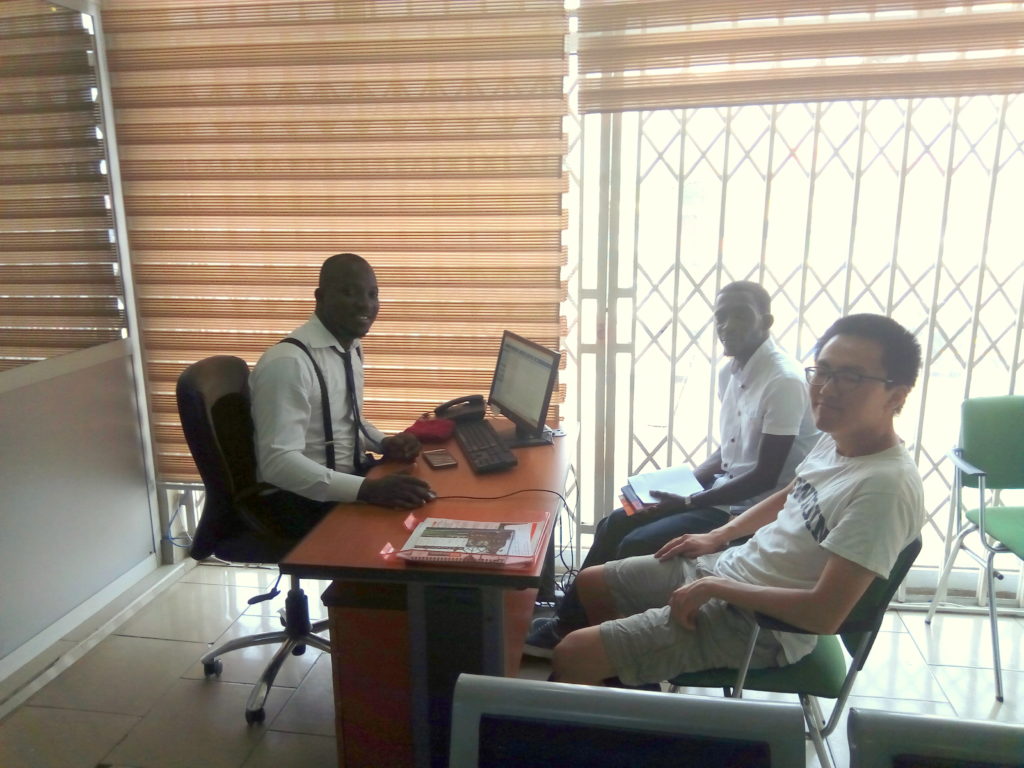Visit To SRF Microcredit
Emmanuel Yamoah (National Projects Manager) and Harry Jung (intern, Bowdoin University) from Patriots Ghana went visited SRF Microcredit for a brief meeting. The purpose of the meeting was to discuss with Justice Arthur (Head of Marketing and programs manager of GAFI) how the institution goes about giving out loans, who are their clients and under what terms of agreement. Although visiting a not-for-profit MFI would have given us more direct answers, visiting a for-profit institution offered an indirect and yet insightful new perspective.

Many interesting points were made by Justice. They include a fact that Ghanaian government regulates MFIs to operate in a single branch and focus on one area. As a for-profit MFI, Justice’s clients are salary workers, foreign students, and corporations—people or organizations whom are established and have credible financial backing. Apparently, it is a very profitable business; for a group of 6 full-time staff and a few interns, they serve more than 2,500 clients. With profit in mind, their interest rates are naturally higher than ours, which is a non-profit microfinance project. For example, Justice showed us as a typical balance sheet has interest rate at 8%, which applies to all outstanding loan balance monthly. We follow the same method, but ours is set at 4.5%. Something we don’t do—they charge upfront processing fee of 3.5% to cover for initial operational cost like drawing up paperwork, transportation, etc.
They are very successful at getting their owed money back in time. This is due to multiple factors. For example, for salary workers, their income bank account is linked to their lender, so lender automatically takes out monthly dues from the income bank account. This can’t be done with our project since our clients are technology adverse and don’t have bank account. All their transaction is done by cash. Furthermore, collateral is used. For example, a student must turn in a phone worth 2500 cedi and keep it with the bank for the duration of the loan to access to a loan of half of the phone’s value of 1250 cedi. PG does not use collateral during the loan screening process since no collateral in our client’s procession can match the money loaned out. Lastly, Justice’s MFI charge daily penalties for each day due is late. The rate is 12.5%. We use group liability in a high social capital area in the hopes that the members will keep each other at check since if one is late on repayment, the other group members are liable to repay on the person’s behalf.
Besides having clients who are educated and have stable income, the aforementioned ways ensure that for-profit like the one Justice works at minimizes arrears and defaults. Our choice of what sort of clients to work with in our microfinance project, illiterate and some of the poorest women in Ghana, brings up multiple intertwined constraints. Though mission and mindset between a for-profit, like SRF and non-profits are fundamentally different, there are lessons we can take away from the successes of for-profit MFI. One is that strong enforcement like penalty on arrears do decrease arrears and the risk of defaults. Finding creative solutions for achieving stronger enforcement, while not forgetting non-profit mission, tailored to the unique socioeconomic environment where we operate is a key step.
Credits: Harry Jung (intern, Bowdoin University)

